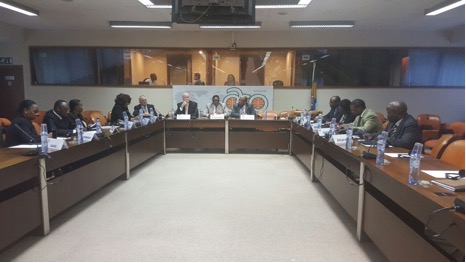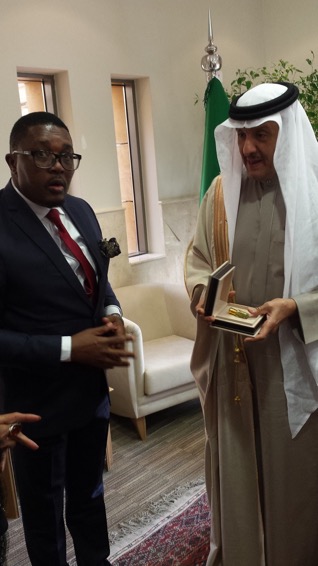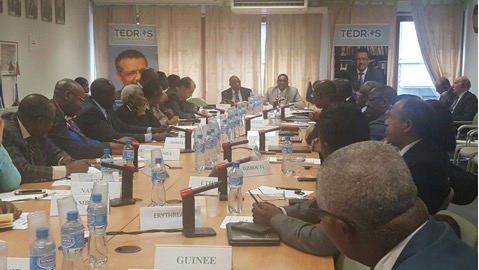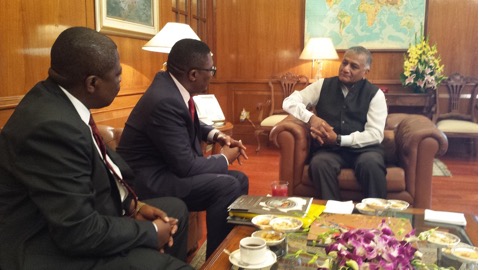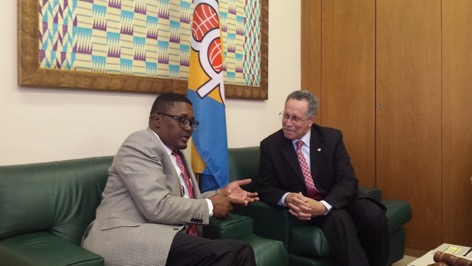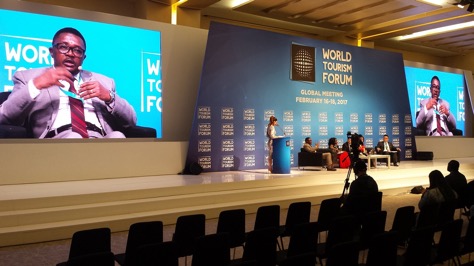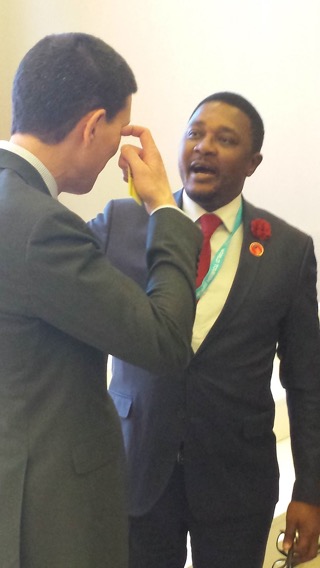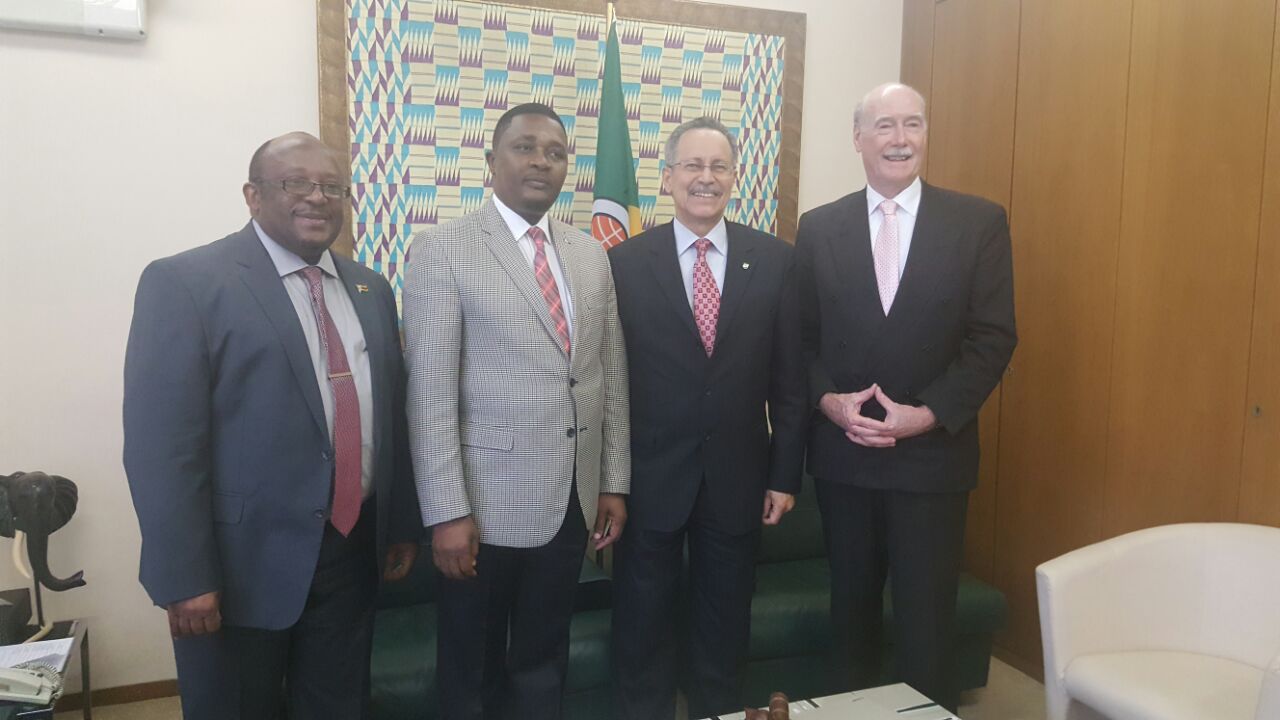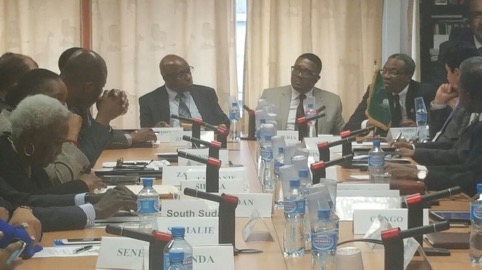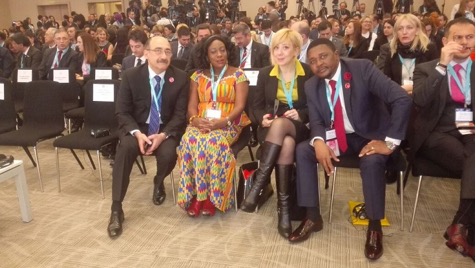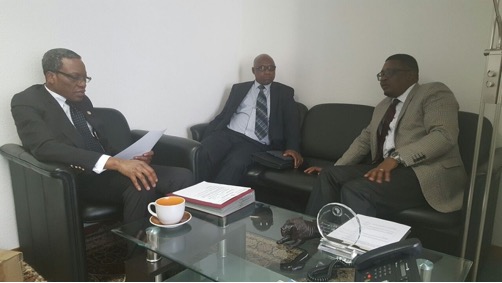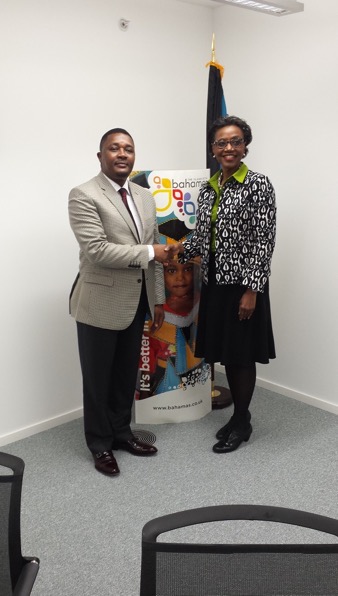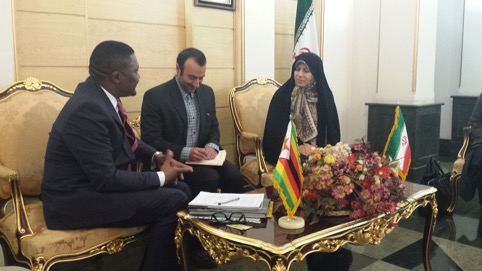
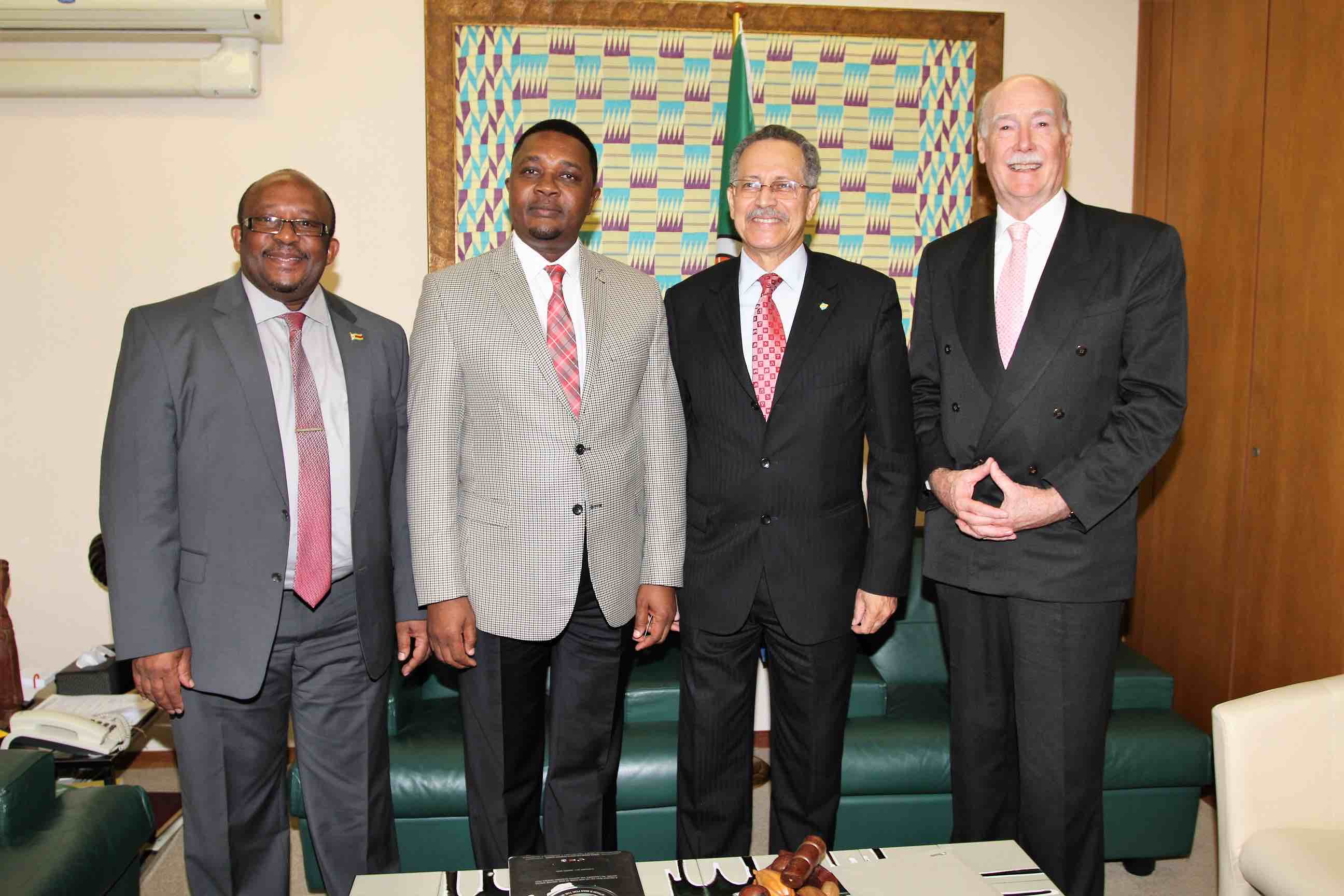
A future UNWTO Secretary General tells it from the African Candidate point of view
Who will be the next Secretary-General of the United Nations World Tourism Organization (UNWTO)?
Endorsed by the African Union (AU) during the July 2016 summit in Kigali, Rwanda, Dr. Walter Mzembi is continuing his worldwide outreach to garner international support for his bid to secure the top job at the Madrid-based tourism organization.
Elections for the next Secretary General will take place at UNWTO Headquarters, in Madrid, from 11 to 12 May 2017, during the course of the 105 Meeting of the Organisation’s 33-member Executive Council.
Mzembi has traveled the globe over the intervening months, engaging directly with the governments of key UNWTO Executive Council member states – detailing his vision for the future development of global tourism under the UNWTO umbrella should he be elected Secretary General.
His most recent travels have taken him to Saudi Arabia, Iran, and India. An additional stop was made in Istanbul, Turkey, where, along with his counterpart Ministers from Azerbaijan and Ghana, both UNWTO Executive Council members. Mzembi participated in the 2017 World Tourism Forum in Istanbul.
The Minister then traveled to Brussels where he met Ambassadors of the 79 member African, Caribbean, and Pacific (ACP) Grouping. His final stop was the United Nations Headquarters in Geneva, Switzerland. Under the chairmanship of the African Union Permanent Delegate to the UN Organisations based in Geneva, he met with the 51 African Permanent Representatives to the UN. The same representatives have administrative oversight for the African Union at the UNWTO. UNWTO is based in Madrid, Spain.
Mzembi, who is also the minister of tourism and hospitality for Zimbabwe is due to spend only a few days home in Harare before embarking on the next leg of his outreach mission.
A final round of visits is being scheduled from mid-April to early May.
As the March 11 deadline for the submission of candidatures to the UNWTO post approaches, there are 5 officially declared candidates for the Secretary General’s post.
Apart from Dr. Mzembi there is Mrs. Doh Young-shim (Korea). She entered into an unprecedented electoral alliance with Mr. Carlos Vogeler, a serving Executive Director of the UNWTO, a Venezuelan- Spanish national. Mr.Marcio Favilla a Brazilian, Ambassador Mr. Zurab Pololikashvili from Georgia and Mr. Alain St Ange from the Seychelles are also competing with Dr. Mzembi for the post.
Dr. Mzembi said: “ In a very real sense, the electoral contest is between a group of candidates from Korea/Spain, Brazil, and Georgia who constitute and who promise little more than a continuation of the status-quo and stand for UNWTO to carry on as before. My candidature is about my promise to bring significant change to the manner in which the UNWTO approaches and delivers upon its mandate.”
According to Dr Mzembi, his assessment is shared by many of those he had engaged in his outreach program. Mr. Mzembi feels that to surrender the UNWTO Secretary-General-ship to yet another bureaucratic succession will be to condemn the Organisation to further peripheralisation and irrelevance within the global system. According to Mr. Mzembi, this is an outcome which can in no way serve the best interests of the tourism industry or the millions upon millions across the globe whose livelihoods depend on legitimate, unfettered, facilitated travel.
Dr. Mzembi envisages a UNWTO more audible and more visible both within the UN system and more broadly on behalf of the international tourism industry. This vision includes promoting sustainable tourism, in all its many facets, to the very mainstream of global socio-economic development under the SDG platform. It includes securing widespread recognition of tourism as a major contributor to the quest for global understanding, harmony, and peace.

UNWTO Panel on Indigenous Tourism: Promoting equitable partnerships
As one of the most thriving economic activities, tourism is well placed to contribute to indigenous people in improving their livelihoods. If managed responsibly and sustainably, indigenous tourism can spur cultural interaction and revival, bolster employment, alleviate poverty, curb rural flight migration, empower women and youth, encourage product diversification, and nurture a sense of pride among indigenous people. However, this type of tourism also raises a series of ethical, social, economic and human rights-related challenges that need to be addressed by the sector.
These convictions are upheld by the Larrakia Declaration adopted by the World Indigenous Tourism Alliance in 2012, which enjoys the support of UNWTO as a landmark document for the empowerment of indigenous peoples through tourism. With the Larrakia Declaration as a backdrop, this UNWTO panel will discuss equitable partnerships between indigenous and non-indigenous stakeholders that can benefit the communities on the long-run and will also suggest some guidance in this regard.
Furthermore, the event will establish linkages between the International Year of Sustainable Tourism for Development, championed by the United Nations, and indigenous communities, given their ancestral knowledge of nature and methods of sustainable management of resources that they depend on. The panel will finally showcase good practices which have provided indigenous people with concrete entrepreneurial opportunities and economic empowerment.
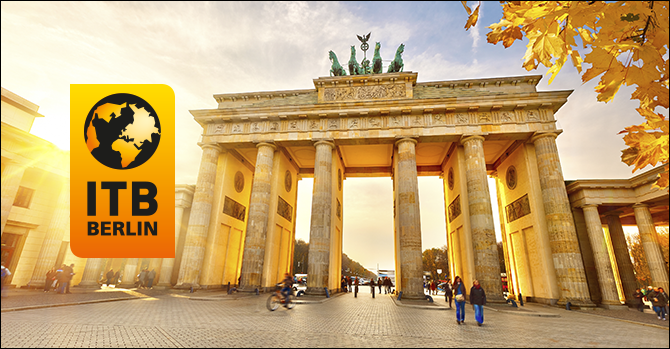
The Dark Side of Tourism during ITB
World Tourism Network on Child Protection invites to public event during ITB Berlin.
The upcoming ITB trade show in Berlin, Germany is not only the largest travel and tourism event in the world, but also the place to show support in the fight against exploitation of children through tourism.
The United Nations World Tourism Organization will recognize the importance of this issue for world tourism on March 9, 2017 15.00-16.30- at a public event at Room M1, City Cube, Berlin Congress Centre.
eTN Publisher Juergen T Steinmetz has been a member of the UNWTO task group for almost 10 years and will be looking for best practices and initiatives to share with eTN readers on how government, private companies and anyone else helps to combat this dark issue in tourism and is extending a special welcome to eTurboNews readers to attend.
The UNWTO’s Child Protection Network serves as a platform for tourism stakeholders to exchange good practices and discuss the most pressing challenges in curbing child and youth exploitation in the tourism sector, including sexual exploitation, child labour and trafficking. The Network draws together governments, the tourism industry, international organisations, non-governmental organisations (NGOs) and media associations.
Under the guiding principles of the Global Code of Ethics for Tourism, the mission of the World Tourism Network on Child Protection is to support efforts to protect children from all forms of exploitation in tourism. Although its main focus is the protection of minors against sexual exploitation, it encompasses the issues of child labour and the trafficking of minors. Its principle objectives are:
• to raise awareness among the tourism sector, governments and tourists;
• to encourage the tourism industry to engage in ethical practices, particularly by adopting professional codes of conduct and other self-regulatory measures;
• to invite governments to take administrative and legal measures, such as the designation of focal points (contact persons) within their national tourism administrations, the establishment of emergency hotlines, the strengthening of national legislation and the improvement of law enforcement;
• to encourage cooperation between the public and private sectors, as well as between tourist generating and receiving countries; and
• to monitor the fight against the sexual exploitation of children in tourism networks at both the national and international levels.
This year’s meeting at ITB will highlight the most successful initiatives championed by the governments, particularly by national tourism administrations, thus paving the road for tourism destinations to lower the extent of vulnerability of child and youth.
The event will also establish linkages with the Int’l Year of Sustainable Tourism for Development 2017 by illustrating good practices that improve livelihoods of children.
UNWTO Secretary General Taleb Rifai will deliver introductory remarks together with Ms. Carol Bellamy, Chair of the World Tourism Network on Child Protection.
Participants will hear from
H.E. Mr. Najib Balala, Minister of Tourism, Kenya
Mr. Tokiaritefy Rabeson, General Director of Tourism Development, Ministry of Tourism, Madagascar
Ms. Magdalena Montero, Adviser to the Minister of Tourism of Uruguay, Representative of the Regional Task Force for the Protection of Children in Travel and Tourism of the Americas (GARA)
H.E. Ms. Kobkarn Wattanavrangkul, Minister of Tourism and Sports, Thailand
Ms. Khin Than Win, Deputy Director General, Ministry of Hotels and Tourism, Myanmar
Mr. Mohamed Basheer, Chief Inspector, Head of Family and Child Protection Department, Maldives
Police Service, and Ms. Alice Akunga, Country Representative for Maldives
Ms. Clare Jenkinson, Senior Destinations & Sustainability Manager, Association of British Travel Agents – ABTA
Mr. Amitava Bhattacharya, Founder and Director, banglanatak.com- Social Enterprise from West Bengal, India
Ms. Joanna Rubinstein, President & CEO, World Childhood Foundation USA and Board Member of the Global Partnership to End Violence Against Children
Participants have the opportunity to interact and ask questions.
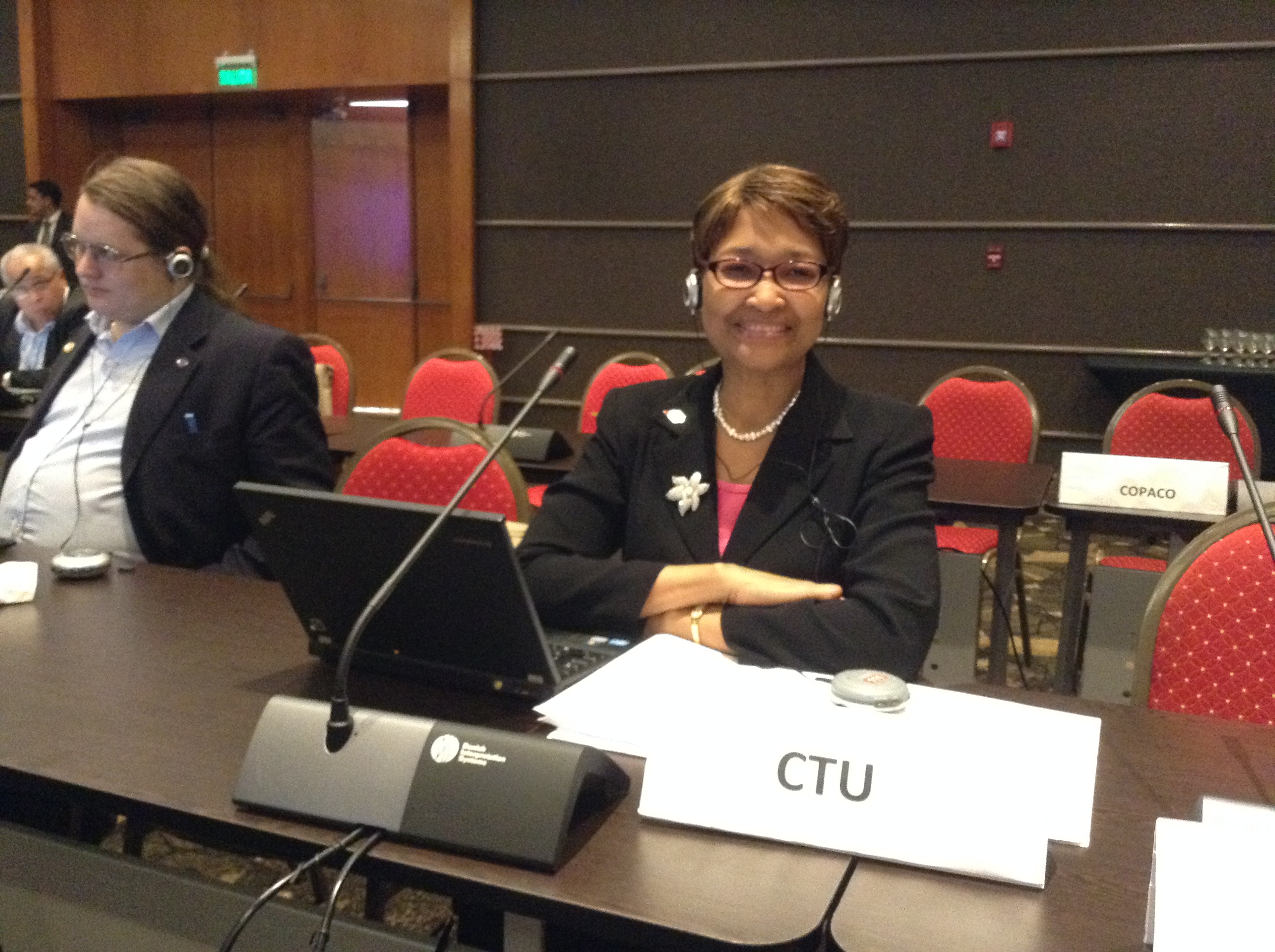
CTU Secretary General leads discussions on sustainable development goals at international forum
Asunción, Paraguay (24th February 2017) – The Secretary General of the Caribbean Telecommunications Union (CTU), Ms. Bernadette Lewis, led a discussion panel addressing the United Nations Sustainable Development Goals (SDGs) at the International Telecommunications Union’s (ITU) Regional Development Forum on 20th March in Asunción, Paraguay.
In her introductory remarks, the SG noted that in September 2015, the countries of the United Nations (UN) adopted 17 Sustainable Development Goals (SDGs) in itsTransforming our World: 2030 Agenda for Sustainable Development. The Agenda which came into force on 1st January 2016 seeks to “free the human race from the tyranny of poverty, heal and secure the plane and shift the world on to a sustainable and resilient path”. The SG explained that the achievement of these goals is a collective responsibility that requires collaboration and honest, dedicated cooperation by all global citizens, including governments, the private sector and civil society.
The discussants in the Panel, Teresita Palacios, President of CONATEL (National Telecommunications Commission), Paraguay; Jorge Torres, Deputy Secretary of COMTELCA (Regional Technical Commission of Telecommunications), Honuduras; Roberto Hirayama, Regulation Specialist, Anatel, Brazil; and Chiedozie Dickson Osuala, Manager Market Economics, Telecommunications Authority of Trinidad and Tobago (TATT); explored the role of different stakeholders in promoting the SDGs, and how information and communication technologies (ICT) could help in achieving them.
Without exception, the panelists were of the firm view that affordable access to ICT and Broadband were essential for the attainment of the SDGs. They pointed specifically to the potential of ICT to promote social inclusion and foster economic development but this would require extending networks to all national communities.
SG Lewis in summing up the contributions of the panelists emphasized the need for transdisciplinary collaboration in setting realistic goals, planning and execution of ICT projects. She noted that public awareness and education of all stakeholders were integral to the process.
Finally, demonstrated political will to drive ICT for development and measurement of the progress are mandatory in order for the potential of ICT to contribute to the attainment of the SDGs.
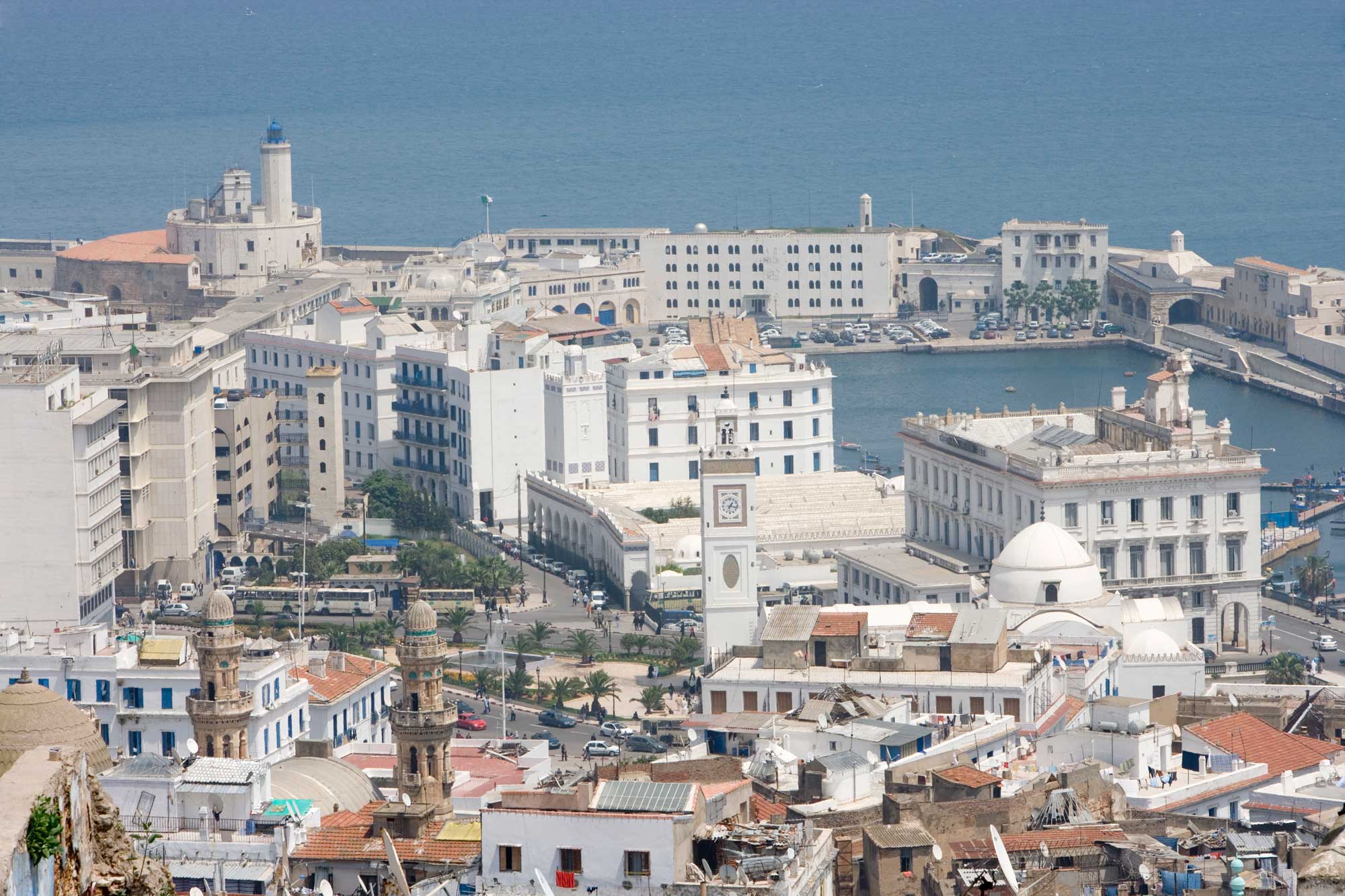
Algeria kicks off 1st UNWTO Regional Capacity Building Programme on Tourism Statistics
In the framework of the technical assistance that the World Tourism Organization (UNWTO) provides to Member States, especially in their development of sound statistical systems, the People’s Democratic Republic of Algeria has hosted the 1st Workshop on Regional Statistics of the Tourism Sector (13-15 February 2017). The program aims to enable the development of tourism statistics according to the United Nations standards at the national level and to implement the Tourism Satellite Account project over time. This three-year programme, which was launched this year and is to be concluded in 2019, consists of a series of capacity-building workshops for officials from national tourism administrations, national statistical offices, central banks and Immigration Offices.
On the occasion, UNWTO Secretary-General, Taleb Rifai, praised the efforts done by the Ministry of Tourism of Algeria to place the sector at the core of the economic development policies and recalled the importance of tourism statistics for tourism development.
“Statistics are essential as they are the basis to shape efficient tourism policies, very needed in a region where the sector has so immense potentials,” said Mr. Rifai.
Measuring the impact of the tourism sector through statistical data has been one of the key areas of work of UNWTO in the last decades. The Tourism Satellite Account is one of the pillars of this approach.
In parallel to the workshop, the Secretary General held bilateral meetings with government authorities including H.E. Abdelmalek Sellal, Prime Minister of the People’s Democratic Republic of Algeria. The discussions were focused on tourism’s potential in Algeria and the necessity to develop human capital. The Prime Minister acknowledged the declaration by the United Nations of 2017 as the International Year of Sustainable Tourism for Development and confirmed that his country shares the same vision, especially in the development of sustainable tourism which can guarantee each nation the realization of common objectives on the economic, environmental and cultural sustainability. Mr Rifai discussed at length with H.E. Abdelouahab Nouri, Minister of Land Management, Tourism and Handicrafts the strong potential that the country has in tourism and the technical assistance that UNWTO may provide to Algeria.
“Algeria is truly committed to creating a more competitive and sustainable tourism, a sector that can become one of the pillars of Algeria’s economy and a tool for diversification and inclusive growth,” he said.
The improvement of air connectivity of the country was praised by the Secretary General who also commended the support of the Algeria to Tunisia. “We hugely acknowledge the support that Algeria has provided not only through long-stay tourists in Tunisia, but through significant tourism expenditure in Tunisia as well. Standing together is the best thing we can do in the face of crisis to help recovery,” he mentioned.
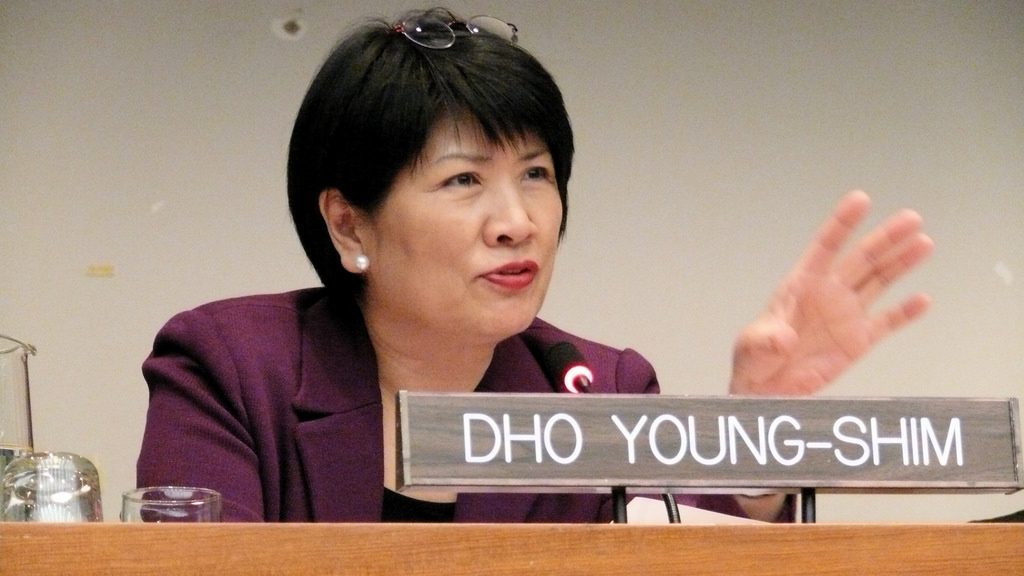
Positioning delivery of tourism performance over personal profile
What does it take to lead the world’s largest, most comprehensive tourism community? This is the question that many are trying to answer as the race for the next head of the UNWTO heats up for the role of Secretary General.
So far, a number of very capable tourism leaders and personalities have stepped forward with their candidacy, the process requiring their nations formally submit their nominations. To date, four continents have shown interest with names: Africa with two, Asia, the Americas one, and one from Europe. With the official date for closure of nominations still two weeks off, perhaps new names will be added to the final list for panel review of qualifications.
The race for the top job will have significant standards to maintain. In just two terms of leadership of the UN body tasked with promoting “responsible, sustainable and universally accessible tourism”, its outgoing Secretary General, Mr Rifai, a Jordanian national, is leaving very large shoes to fill.
As stated by its website, through a membership of “157 countries, 6 Associate Members and 500 Affiliate Members representing the private sector, educational institutions, tourism associations and local tourism authorities”, the UNWTO’s Secretary General has raised the bar on cooperative leadership across the global tourism community, both government and business. Rifai has brought a heightened level of profile, credibility and impact to the sector, shifting the image of tourism from a non-essential, indulgent leisure activity to an essential economic driver. And he has done this without raising the profile of himself.
This is why the highly competitive, and often extremely personal, nature of the competition for the top job has many raising eyebrows. Rifai’s tireless servant-leader style of leadership has become a hallmark of the organisation.
Amid all of the Which is why the approach of one candidate, South Korea’s AMBASSADOR DHO YOUNG-SHIM, is being looked to with interest both in terms of strength of qualification, and importantly, in appreciation of approach.
A tourism practitioner who has dedicated her life’s work to the sector, she understands from her own experience and exposure how nations around the world can use Tourism to elevate not just their economies, but their social fabric, their environmental protection, their national identity, and their ability to compete globally with other countries in getting tourists to visit as a prelude to strengthening their economies. Theory is one thing – reality is another. Her over 40 years in tourism, including 20 in the UN, gives her the strongest global perspective on the ability of tourism to effect meaningful change for the better of countries economically, specially, environmentally. Not to mention how to make the UN work harder to deliver results. She represents strength through her insider and outsider knowledge, credibility and critique. That’s the bottom line when it comes to recognizing and delivering on the opportunity of tourism, for one and all.
Ambassador Dho does not just talk ‘leadership first, not leaders’, she is walking her talk.
Unlike any other candidate in the race, Ambassador Dho is openly positioning her running mate – CARLOS VOGELER, a Spanish national born in Venezuela, educated in Spain and Canada, with a broad experience both in the private and public tourism sector, and currently in the role of Executive Director for Member Relations at the UNWTO, as well as Regional Director for the Americas.
The global/local; Asia/Europe/Americas; female/male; government/business combinations, together with the combined experience and expertise is an interesting and powerful one, and specially one quite focused on delivering results.
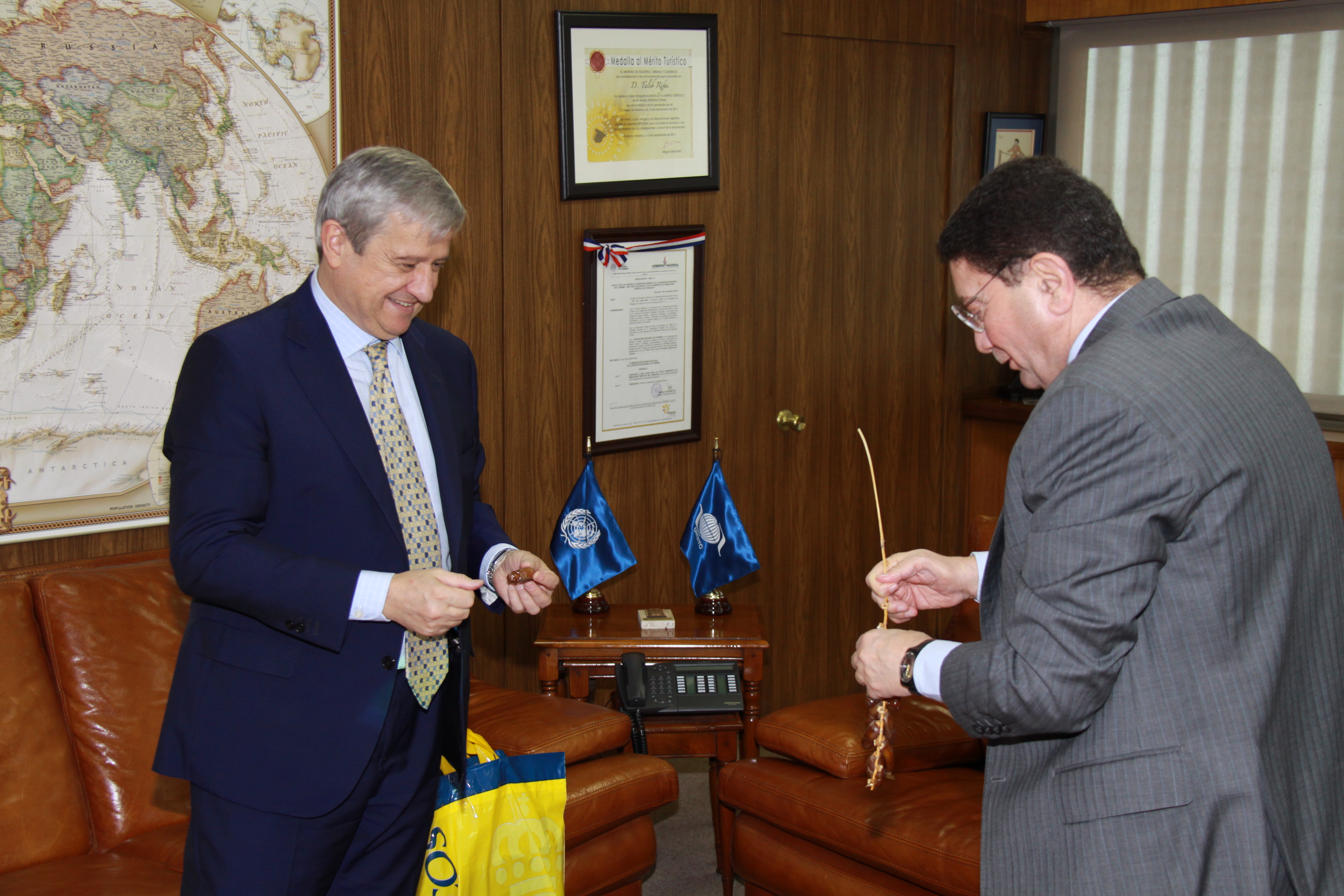
UNWTO hosts presentation of stamps commemorating International Year of Sustainable Tourism for Development 2017
UNWTO Headquarters in Madrid hosted the presentation on Tuesday of two Spanish stamps commemorating the International Year of Sustainable Tourism for Development 2017.
The United Nations declared 2017 as the International Year of Sustainable Tourism for Development, highlighting the potential of tourism to be a pillar of a sustainable, inclusive and equitable future for all.
UNWTO Secretary-General Taleb Rifai recalled that the Year aims to inspire change among all those involved in tourism, including tourists themselves, so that they are mindful of their role in travelling with respect for cultural heritage, the environment and the hosts that welcome them.
“This stamp is one of the key tools to reach all those traveling in Spain and engage them in making a positive impact. We are extremely grateful to the Spanish government and to Correos (the Spanish National Post Office) for this initiative”, said Secretary-General Rifai.
“It is always a pleasure to present a new stamp but, in this case, my gratification is greater because these stamps are dedicated to tourism, one of the most important emblems of our country,” underlined Javier Cuesta Nuin, President of Correos.
With a circulation of 14,000,000, the stamp will promote responsible tourism among Spaniards and the millions that every year visit Spain.
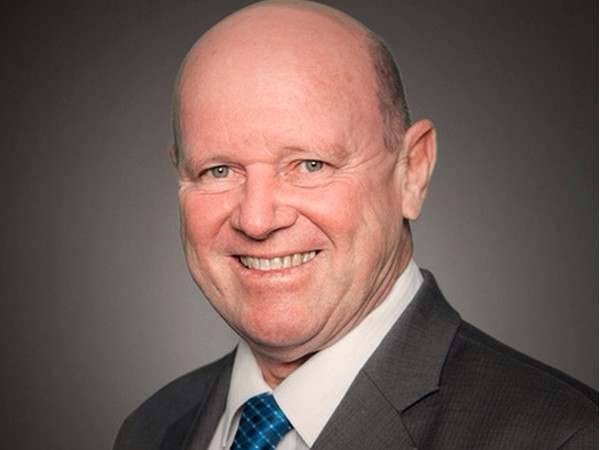
Seychelles and Zimbabwe in Uganda lobbying for UNWTO Highest Post
Alain St. Ange, the former minister of Tourism for the Seychelles is trying hard to be heard in Africa to compete against the Hon. Walter Mzembi from Zimbabwe for the job as the next UNWTO Secretary General position. The two African candidates have one argument in common. No African has ever served as the UNWTO Secretary General.
Alain St.Ange told a recent audience of supporters, he wanted tourism for all and regional UNWTO offices.
Giving interviews on CNN, BBC and SKY TV last week the minister summarized his ideas at a recently concluded Uganda tourism events, where he was invited by the Ugandan Minister for Tourism, Wildlife and Antiquities, Prof. Ephraim Kamuntu to speak.
He said in Kampala:” In Seychelles, we respect the people with a disability, we have moved to realize that their strength is their difference, and we prefer to refer to them as the handi-abled as we open doors for everyone. Today is some part of the world the state of tolerance is at its lowest with rhetoric based on discrimination of color, race, religion, politics and sexual preference seen as being terrible. There is hate, there is poison. Together we can work with the press for a new departure to sideline those who need help accept that tourism and the world of tourism is for all.”
He then went on to speak about the electoral procedure when he added: ‘I appreciate that it is the Minister of Tourism of the countries with a seat on the Executive Council of the UNWTO who will be casting a vote in the May elections, but believing in Democracy it is important to let those who have worked with me for tourism to also echo their feelings as they speak to their own Governments about their ideal choice. I am thankful for this democratic approach of endorsements for the coming election for the seat of Secretary General for the UNWTO by the frontline team of tourism. They have worked with me for tourism and they know me well. They all remain the motor behind tourism and what makes tourism tick.
St. Ange then concluded by adding: “If elected as Secretary-GeneralI will raise the cause of tourism for all as a must for a UN body. My strategies to help not only the disabled travelers but also to help the person with a disability to find work in the tourism industry is clear. We all know that travel produces long-term health benefits with leisure opportunities relieving stress. We also know finding employment for people with disabilities is a must as we grow up and respect people…simple.
My vision also includes the setting up of regional UNWTO offices to directly benefit member states and allow an immediate response should any type of event make this necessary. Imagine how the wider East Africa could benefit from such a presence in terms of support.”

Dr Darlington Muzeza, Zimbabwe, questioned Mr. St.Ange for not working with “your brother Minister of Zimbabwe” and he then trivialized SADC and AU resolutions regarding the candidature of Dr Mzembi.
St.Anges address did not get well with the government of Uganda who indicated the African Union Decision to endorse the Minister of Tourism for Zimbabwe Dr. Walter Mzembi for the UNWTO Post.
Hon. Walter Mzembi while in Turkey attending the World TourismForum sent his deputy ,the Deputy Minister of Tourism and Hospitality for Zimbabwe Hon Anastancia Ndhlovu to address the audience in Uganda.
This is what Zimbabwe’s deputy minister had to say about St.Ange’s address:
Regardless, Uganda’s voice is not so important. This East African country is not a member of the UNWTO Executive Council. Executive Council members will be meeting in May to recommend their candidate to the UNWTO General Assembly.
Here are the countries every candidate needs to convince:
Angola, Azerbaijan, Bahamas, Bulgaria, China, Costa Rica, Croatia, Democratic Republic of the Congo, Ecuador, Egypt, France, Germany, Ghana, India, Iran (Islamic Republic of), Italy, Japan, Kenya, Mexico, Morocco, Mozambique, Peru, Portugal, Republic of Korea, Saudi Arabia, Serbia, Seychelles, Slovakia, South Africa, Spain, Thailand, Tunisia, Zambia.
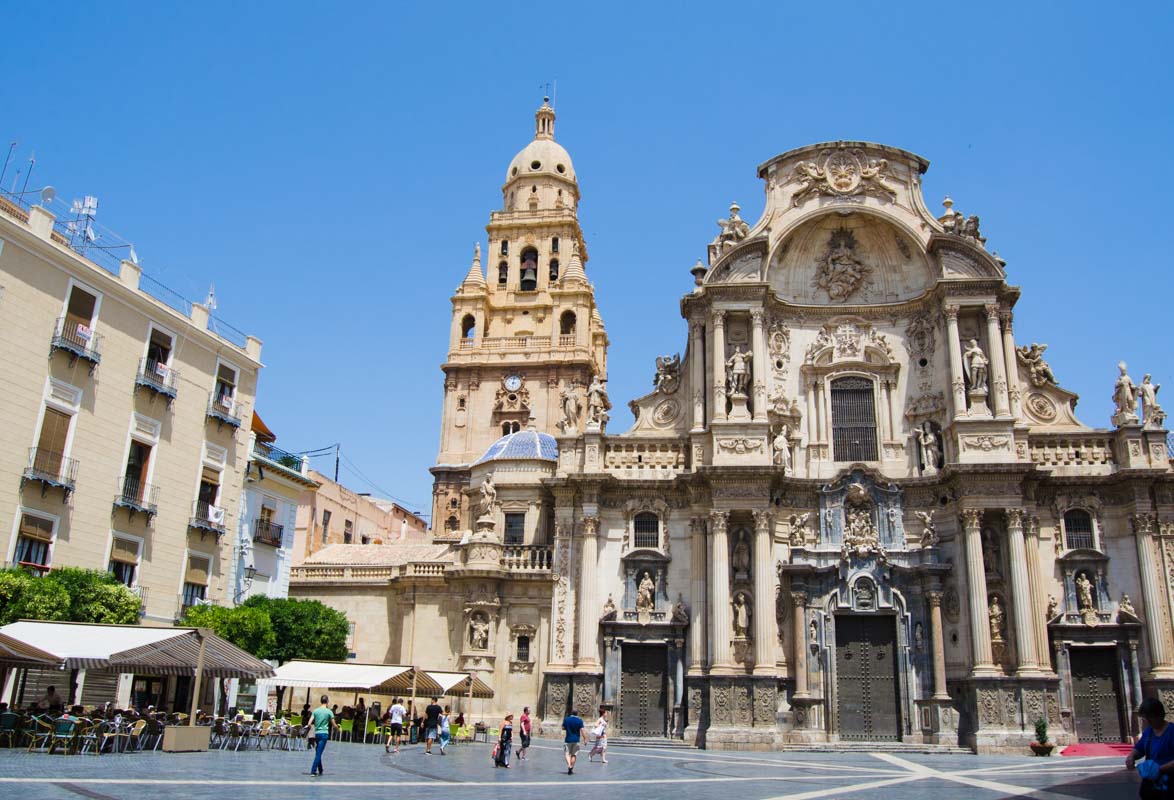
Innovation, technology and sustainability – pillars of Smart Destinations
Over three days (15-17 February) more than 100 speakers from 20 countries convened in Murcia, Spain to present solutions and experiences for ‘smart destinations’. The 1st UNWTO World Conference on Smart Destinations was organized by the World Tourism Organization (UNWTO) in cooperation with the Ministry of Industry, Tourism and the Digital Agenda of Spain and the Region of Murcia.
‘Smart destinations’ are key to sustainable development and contribute not only to advances in the tourism sector but also in societies at large. The use of technological solutions contributes effectively to evidence-based decision making, prioritization of measures and anticipation of future scenarios, which is essential for responsible management of tourism and its impacts.
Topics such as smart destination systems for regular and timely measurement, intelligent promotion of tourist sites and digital accessibility formed part of the parallel presentations given over the three days.
Improved accessibility of destinations thanks to new solutions, the opportunities and challenges deriving from geo-referenced data, big data and open data platforms, and enhanced environmental protection through smart tools were also part of the discussions. Furthermore, changing travel behaviours and increasing personalized customer experiences, new business models and the role of entrepreneurs, improved participatory processes supported by smart solutions, the relation between travellers and local communities, and the sharing of existing applications were at the core of the conference.
“‘Smart tourism’ is not a trend, but the future of tourism development,” said UNWTO Secretary-General Taleb Rifai opening the conference. “The International Year of Sustainable Tourism for Development 2017 is the perfect framework to conduct such an event, as it addresses major challenges and opportunities of the tourism sector in the coming years,” he added.
“Spain has not only accepted the concept of ‘smart tourism’, but it has also launched related projects and actions, such as the conversion of the island of El Hierro and other cities such as Palma into ‘smart destinations’, or the development of normative work on this topic,” said State Secretary of Spain for Tourism, Matilde Asián.
”Destinations have to assume the new global framework: a complex context in which tourists’ behaviour and new technologies are changing economic structures and related policies; we are in a new scenario of continuous evolution,” said the President of the Murcia region, Pedro Antonio Sánchez.
Additional information:
List of sponsors: Iberia, Amadeus, Union Pay, SAP, Drore Technology, Telefónica, Región de Murcia, Ayuntamiento de Caravaca de la Cruz, Diócesis de Cartagena, Grupo Fuertes, Reina, Estrella de Levante, Salzillo, Limcamar, CaixaBank, UCAM, Real e Ilustre Cofradía de la Santísima y Vera Cruz de Caravaca, Interapothek
Co-Sponsors: Fundación CajaMurcia, Iberdrola,
Collaborators: Instituto de las Industrias Culturales y de las Artes, Auditorio y Centro de Congresos Víctor Villegas, Turismo de Murcia, Visualtis, Predif, Iurban.es, ,International Federation for IT and Travel&Tourism, Tur4All

Closing borders risks jobs”, World Travel & Tourism Council warns US Administration
“The United States (US) is in danger of taking the same path it took after the 9/11 terror attacks, which led to a decade of economic stagnation in the Travel & Tourism sector”, said David Scowsill, President & CEO, World Travel & Tourism Council (WTTC), while speaking in Las Vegas today, 14 February 2017.
“Strict visa policies and inward-looking sentiment led to a $600 billion loss in tourism revenues in the decade post 9/11, as previously reported by the US Travel Association, with a noted 9% drop in international arrivals in the period of 2001 – 2009.
The Trump Administration is in danger of steering the country in the same direction, which could have a huge impact on the country’s Travel & Tourism sector, which generates over 8% of the country’s GDP and supports nearly 10% of total employment in the US”, warned Scowsill.
Airlines, hotels and travel agencies are all reporting drops in international bookings to the US, following the Executive Order banning visitors from seven countries to enter the country. This is the unintended consequence of the ban announcement, with business and leisure customers from around the world holding back on their travel plans.
Scowsill spoke directly at the Administration during his speech, offering five pieces of advice to the President’s advisors:
- Recognise that travel is a key generator of American jobs and economic growth.
- Keep tourism out of politics. Blanket bans on citizens from specific countries will not make the American people safer.
- Remember the decade of lost economic growth. Travellers have a choice and they will go elsewhere.
- Use the technology available to share information. That will ensure that only the right people arrive at borders in the first place.
- Consult with the industry in advance of change. This will make the implementation of policies more orderly, fairer and less damaging.
“For the President who has promised to create jobs and to make America great again, Travel & Tourism seems the most obvious answer. After all, the livelihood of millions of Americans depends on people being able to use planes, trains and automobiles to spend their tourist dollars.
Travel & Tourism thrives by breaking down barriers, not building them; by making it easier for people to travel, not applying blanket bans. Our sector bridges divides between cultures, fosters understanding across religious and geographic boundaries. It is a massive generator of jobs and economic growth.” Scowsill concluded.

